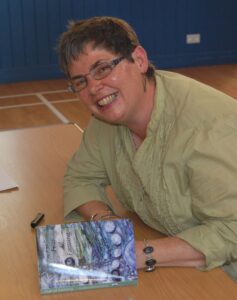
Archaeology is important to me. I just love it when it permeates everyday culture. It is a justification in my mind of its significance as an artefact, itself contributing to the way we live now.
I am always happy to come across novels that use archaeology as a cornerstone of their narrative, and I have read some good ones recently. I find that popular fiction provides a great mirror through which to view contemporary lives. So finding archaeology as a motif, is (to me) a signal that it counts. I am even happier to see that the individual authors I have been reading each have their own, very different, ways of using archaeology. I’m not talking about depictions of history or prehistory here, there are plenty of those, rather I am talking about work that makes use of the practice of archaeology.
Not surprisingly, the representation of our profession and its concerns varies considerably across the genre. Two books, in particular, stand out for their contrasting views. One account is positively dystopian, a consideration of the imagined conflict that could result when the outcome of archaeological endeavour has been to question the given wisdom of political and religious authority. It is a bleak prospect. The other muses on the world of those who interpret the past (in this case the Iron Age), to inspire reflections on life as lived today. It is not exactly utopian, there are thoughts on violence, hunger, cold, and loneliness, but it is certainly a much gentler narrative.
It would be hard to find such good examples of polar opposites and I am cheered to see that our discipline can be perceived as so well rounded. Indeed, my experience continues. In addition to some well-research police procedural series, there are novels that revolve around research design and academic teams, novels that use an excavation as their backdrop, and novels inspired by experimental recreation. Of course, they are not always perfect in the fictitious details that they set out, and the quality of the plot can vary (though I have enjoyed all I list here). But, in a way, these flaws merely provide a useful signpost to gaps in the information that we put out. If an author has not picked up on the vagaries of treasure trove regulations or finds reporting, when Iron Age farmers are called hunter-gatherers, surely those provide a reflection of inherent weaknesses in the material people have to hand. It is up to us to make sure that we spread accurate information about our profession as far and wide as we can. And make it as accessible and as wide ranging as possible. Regular readers of this blog will know that I am as passionate about popular dissemination as I am about academic publication.
I do get asked for help with fiction. And, where possible, I try to give it, or at least suggest alternative sources of information. It is easy to be snobbish about some of the projects that others embark upon. But if we don’t help out then we have no right to criticise when we don’t like the final version or find that an author has incorporated inaccuracy. Of course, assistance does not always guarantee the final outcome, but at least we can say that we have tried.
There are, I know, many examples of authors who have played with the ideas that we call archaeology – I’ve listed below some that I find readable and fun. They make you think. If you are interested, I recommend that you hunt them out. Enjoy!
Booklist (I’m not going to tell you which is which from my text above – I will leave you to judge them for yourself).
Robert Harris: The Second Sleep
Sarah Maine: Women of the Dunes
Anne Youngson: Meet Me at the Museum
Penelope Lively: Treasures of Time
SarahMoss: Ghost Wall
Barry Unsworth: Land of Marvels
Elly Griffiths: The Ruth Galloway series (read them in order)
Kate Ellis: the Wesley Peterson series (read in order)
Rob Swigart: Stone Mirror
Anne Cleeves: Shetland detective Jimmy Perez is no stranger to local archaeology
Ian Rankin: Inspector Rebus has occasionally encountered archaeologists in Edinburgh
John Preston: The Dig
Enjoy!
You must be logged in to post a comment.